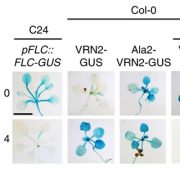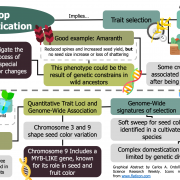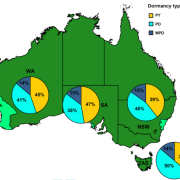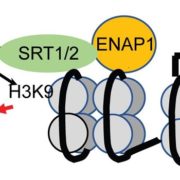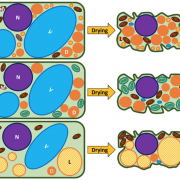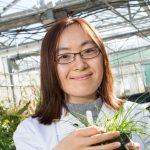Review: Time to wake up: Epigenetic and small-RNA-mediated regulation during seed germination (Plants)
 Seed germination is a crucial step in plants’ life cycle and has critical implications in ecological and agronomic contexts. Therefore, there has been an increasing interest in understanding the mechanisms that prevent or trigger this process. Here, Luján-Soto and Dinkova provide a thorough review of the molecular mechanisms that regulate germination, focusing on histone modifications, DNA methylation, and small non-coding RNAs (sRNAs). An overall reduced transcriptional activity characterizes the final stages of seed development. Still, the expression of maturation and dormancy-related genes (e.g., LEAFY COTYLEDON 1 and 2 and DELAY OF GERMINATION-1) increases during the same stages thanks to the effects of histone modifications like H3K4me3. When imbibition starts, these maturation/dormancy genes are silenced by the action of H3K27me3, and the transcriptional landscape is modified to stimulate germination and seedling growth. To achieve this, the DNA experiences a general demethylation that results in reduced sensitivity to ABA, the promoter of seed dormancy. Recent research has shown that different sRNAs have a key role in shaping seed genetic programs. Still, their role in this process has seldom been explored. Given the detailed overview it provides, this review is an obligate reading for everyone interested in the molecular basis behind seed germination regulation. (Summary by Carlos A. Ordóñez-Parra @caordonezparra) Plants 10.3390/plants10020236
Seed germination is a crucial step in plants’ life cycle and has critical implications in ecological and agronomic contexts. Therefore, there has been an increasing interest in understanding the mechanisms that prevent or trigger this process. Here, Luján-Soto and Dinkova provide a thorough review of the molecular mechanisms that regulate germination, focusing on histone modifications, DNA methylation, and small non-coding RNAs (sRNAs). An overall reduced transcriptional activity characterizes the final stages of seed development. Still, the expression of maturation and dormancy-related genes (e.g., LEAFY COTYLEDON 1 and 2 and DELAY OF GERMINATION-1) increases during the same stages thanks to the effects of histone modifications like H3K4me3. When imbibition starts, these maturation/dormancy genes are silenced by the action of H3K27me3, and the transcriptional landscape is modified to stimulate germination and seedling growth. To achieve this, the DNA experiences a general demethylation that results in reduced sensitivity to ABA, the promoter of seed dormancy. Recent research has shown that different sRNAs have a key role in shaping seed genetic programs. Still, their role in this process has seldom been explored. Given the detailed overview it provides, this review is an obligate reading for everyone interested in the molecular basis behind seed germination regulation. (Summary by Carlos A. Ordóñez-Parra @caordonezparra) Plants 10.3390/plants10020236


